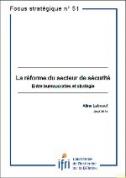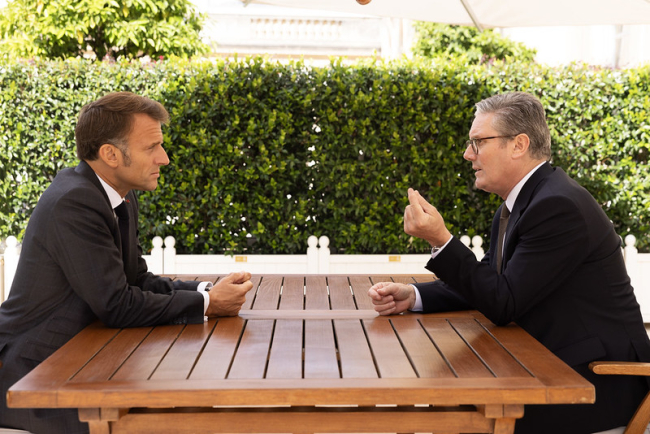La réforme du secteur de sécurité, entre bureaucraties et stratégie

The concept of Security Sector Reform (SSR) was developed during the 1990s as a response to several problems chiefly faced by countries in post-conflict transitions: weak new governments; conflicting civil-military relations; ill-defined division of tasks between the armed forces, the police, and the judiciary system; and tension between the requirements to stabilize the country and to establish the rule of law.
SSR is the product of three distinct institutional traditions (development aid, military cooperation, and democracy promotion). Bureaucratic dynamics have changed the concept and influenced its implementation, leading to a discrepancy between the stated comprehensive ambitions and the more elusive, piecemeal results. The implementation of SSR projects in several post-conflict settings (Sierra Leone, DRC, Afghanistan) has often resulted in either partial success or utter failure. The author presents her vision of a successful SSR: it must stem from a strategic vision that can be readily embraced by the host state and that takes into account local circumstances. It must then be translated into credible policies tailored to practical and operational realities of institutions’ work and to power balances between local forces in play. While implementation requires flexibility (particularly regarding the pace of reforms), the author stresses the importance of mechanisms conducive to a legitimate and credible security sector, such as norm enforcement and incentives for effectiveness.
This content is available in French: La réforme du secteur de sécurité, entre bureaucraties et stratégie
Related centers and programs
Discover our other research centers and programsFind out more
Discover all our analysesSaudi Arabia’s Nuclear Temptations. Lessons Learned from Regional Instability
Saudi Arabia’s integration in the international arena and regional stability, notably through reducing its dependence on fossil energies, are crucial elements for the success of the Kingdom’s Vision 2030, the Crown Prince’s top priority. However, Mohammed bin Salman’s declarations in 2018 and 2021, indicating that “if Iran develops a nuclear bomb, we will follow suit as soon as possible”, combined with the recent strikes on key Iranian nuclear facilities, do not bode well for the future of the Kingdom, the region and the non-proliferation regime at large.
The Future of Air Superiority. Command of the Air in High Intensity Warfare
Air superiority, understood as control of the air, is a cornerstone of the Western art of warfare. It is a decisive condition, albeit not sufficient by itself, to achieve military victory, as it enables the concentration of air power toward the achievement of wider strategic objectives and protects other components from unbearable attrition levels. It is best achieved through the offensive use of air power in a joint effort to neutralize the enemy’s air power.
Europe Uncovered?
As Russia continues to threaten Europe, the Trump administration is making no secret of its desire to withdraw—at least partially—from the defense of the Old
Continent in order to focus on strategic competition with China. It is thus putting pressure on its European allies to increase their investment in the military sector. The NATO Summit in The Hague in June 2025 resulted in ambitious commitments by member states to increase their defense spending.
How should Britain and France cooperate to realise the Northwood Declaration?
During his state visit to the United Kingdom (UK) last week, Emmanuel Macron, President of France, signed a joint declaration with Sir Keir Starmer, Prime Minister, on nuclear cooperation between Britain and France. The Northwood Declaration highlights that while both countries’ nuclear arsenals remain sovereign, cooperation on nuclear deterrence can ‘contribute significantly’ to the security of the North Atlantic Treaty Organisation (NATO) and the Euro-Atlantic region.












